- Learning time
- 60 minutes
- First play time
- 90 minutes
Gloomhaven: Jaws of the Lion
Designed by: Isaac Childres
Gloomhaven: Jaws of the Lion is a co-operative adventure for 1-4 players, played over a campaign of 25 scenarios, where only when one scenario is completed can you move on to the next (if you fail, you restart the current one).
*MILD SPOILERS AHEAD*
The ongoing narrative is that the titular ‘Jaws’ are the party of mercenaries played by the players. Inspired by role-playing dungeon quests, Jaws of the Lion sees each of you one of four races (in a solo game, the single player plays two characters) who have their own equipment, abilities, strengths and weaknesses. Ideally, you work well as a team to overcome the latter and focus efforts on the former.
In each scenario players begin with a hand of cards (six in scenario one) specific to their character. The pickle they’re in is represented by a double-page spread in the scenario book, with each location broken into hexes for movement, combat, and occasionally other actions. There are no dice involved: players have an objective (often simply to defeat all enemies) and move through the scenario playing cards: two at a time.
In every round players choose two cards to play, and all reveal at the same time with only one card showing: this card shows their initiative. All cards have an initiative number, so the one you choose is really about where you are aiming to go in turn order – lower initiatives act first. When your turn arrives you take two actions: the top action of one card, and the bottom action of another. You can do these actions in any order, and what they are in the early stages of the game are very easy to follow: move, attack, cast spells, heal, and so on; following some basic game-world logic: ranged attacks are at a disadvantage when performed close up, melee attacks can’t be performed from a distance, and so on. Jaws of the Lion does a very decent job guiding you through it all, as the first five scenarios of the game interlock with the Learn to Play book, slowly introducing more concepts and complexities as you go.
If all you had to do was move around and hit things though, there wouldn’t be a huge amount of drama. So the bad guys act too: they have an initiative score just like the players, and will activate in initiative order, and – just like the players – as the scenarios develop in complexity and difficulty, so do the monsters you have to defeat.
So the cards you choose define your actions on a round by round basis. But beware! Your cards are also slowly running out. Each round you discard two cards, so eventually you won’t have any left in your hand. The only way to bring your discards back is taking a short rest: shuffling the discards and losing one of them (chosen randomly) until the end of the scenario. Thus, you are slowly running out of cards to play, giving you a finite amount of rounds to reach the scenario objective.
Assuming you do that, Jaws of the Lion rewards you in numerous ways. Gold, that can be spent in the weapons forge of the town to give you equipment, which you can take with you on your next scenario. New and improved action cards to replace the basic ones you start with. And – not to give too much away – more, and more. As the scenarios develop, following the missing-persons narrative, so too do your characters with their experience being reflected in their capacities, and their ‘leveling up’ making them harder for monsters to stop. Of course, the monsters are getting tougher too…
Once Jaws of the Lion’s 25 scenarios are done and dusted you even can restart the campaign: although stickers are added to the town map as you go, pretty much everything else is readily reset. If you can’t bear to change anything though (and perhaps want to pass or sell the game on unsullied) it’s easy to keep track of your progress on paper.
The guru's verdict
-
Take That!
Take That!
The players work together, so any take-that aspects come from the game and have a collective impact. Bear in mind though although characters are never 'killed' and out of the game as a whole, they can be 'exhausted' and removed from an individual scenario.
-
Fidget Factor!
Fidget Factor!
Low - although the first few plays of Jaws of the Lion will be long as everyone familiarises themselves with how everything works, turns are pretty snappy, and as a team you're invested in everyone's turn, not just your own fortunes.
-
Brain Burn!
Brain Burn!
The opening scenarios are fairly easy: dance about knocking some little monsters on the head. But things do develop from there, with options broadening and monsters fighting back rather less pathetically. Faced with every rule from the outset would be a headache, but the game does a good job of introducing them piecemeal.
-
Again Again!
Again Again!
The box comes with 25 scenarios and it is possible to replay them. The surprise, novelty and narrative freshness might be diluted, but the heart of it - the canny cardplay with integrated ticking-clock - will still be present.


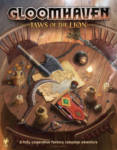


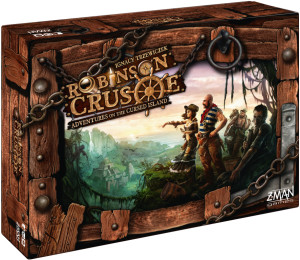
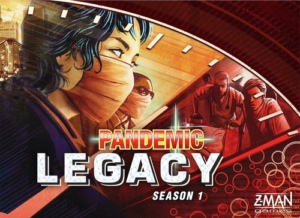
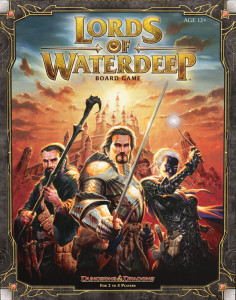
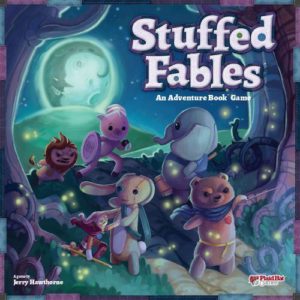
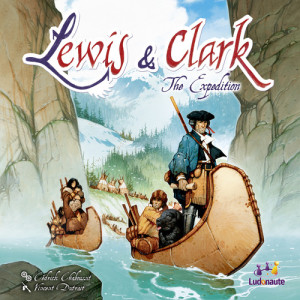
Sam says
We can't write too much about Jaws of the Lion as we actually halted four scenarios into playing. Possibly continuing may have changed our minds: we'll never know and any thoughts here need to be heavily caveated by the fact we've not played even a fifth of the whole experience. The reason for that, though, is around the simple heart of playing two cards, the tactical nuances Jaws of the Lion slowly added brought not just more complexity, but more administration. The fun we had on scenarios 1 and 2 started to pall when we hit scenario 4, simply because there was so much stuff on the table. Just playing for two you're looking at 16 or more card piles of hand, active, discarded, lost, flipped and unflipped attack cards, various chits and effects and - for us - the fun of play began to ebb away under the weight of management: moving, referencing, reshuffling, remembering. It's worth bearing in mind that Jaws of the Lion and its big sister Gloomhaven both have swathes of people who adore it, and don't mind this undertaking for what the games give back - a campaign narrative where heroes go off and do valiant deeds; rewarded with plunder. Lovers of roleplaying games, for instance, will recognise a lot of the ingredients here. But although I can see the cleverness, I just found the experience kind of bureaucratic.